When it comes to the leaders of Pakistan than one can never neglect the services rendered by Quid E Azam Mr. Mohammad Ali Jinnah is the run for independence. The reality which is known as Pakistan would never be exist if it was not strive of Mr. Jinnah and the ideology which he carried with him in Sub-Continent India and even after the independence. People of Pakistan should be proud of their Quaid as he was the one who laid the foundation for the freedom from the tyranny rule of both Hindus and British in sub-continent. Putting the light on the life of Quaid-e-Azam we can find hundreds of enlightened chapters which are witness over his commitment and his devotion towards his fellow Muslims.
Let us have an overview of the Biography of Quaid-e-Azam Mohammad Ali Jinnah and the incidents which were a part of his complete and successful life which made him the leader of a dispersed nation and was responsible to unite them on one cause and then initiate one of the world’s largest migration which was from Sub-Continent India to newly formed Pakistan. Quaid-e-Azam was a person who had such personality traits which forced his respondents to surrender themselves under his guidance, his multi dimensional characteristics made him one great ambassador for the Hindu-Muslim unity which ultimately gave birth to the very important Two Nation Theory. Beside an ambassador he was wise constitutionalist, an energetic and unbiased politician, an enthusiastic freedom fighter, a highlighted figure of the parliament and obviously a true, dynamic and passionate Muslim leader. The life of Mohammad Jinnah is a role model for all the Muslims and not only Muslims his personality traits and characteristics were being appreciated and valued by the Hindus as well as the British Empire. So now let us have the comprehensive all round view to the life of this legend and the events which proved him the ultimate leader.
Quaid E Azam Family and Birth Date
The great leaders are not born in lavish families and the same case was with this personality. Mohammad Ali 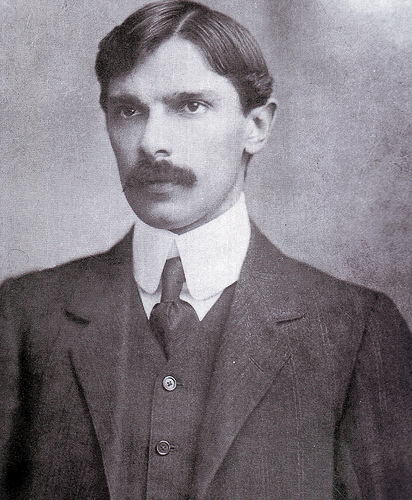
It was in 1893 when Jinnah joined Lincolns Inn and within the three years of his admission he was being called by the Bar, from here this young guy started to get the appreciation which he really deserved as he became the youngest Indian to be called by the Bar. And soon within no mass time Jinnah was renowned as one of the most competent and successful lawyer in the entire Bombay. In the year 1905 Quaid-e-Azam officially entered in to politics through the Indian National Congress. Jinnah went to England in the same year accompanied by Gopal Krishna. In England he continued to practice his law and even polished his skills more before returning to India. His visit of England was on the basis of Indian National Congress for the purpose of inflaming the voice of self rule and freedom for India from the British Empire. After a year he became the secretary of Dadabhai Noariji. One of the biggest political achievements came to Jinnah when he became the president of Indian National Congress which was itself a sense of Honor and pride for a Muslim youngster. Quaid E Azam Daughter Name is Dina Wadia.
Quaid E Azam Political Career
Mohammad Ali Jinnah was sharp and wise person so no doubt he would have been a very successful politician 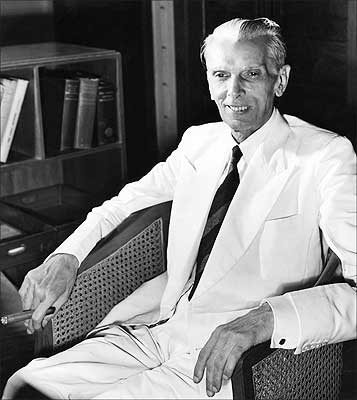
It was almost 3 decades of the stunning political career of Mr. Jinnah that led him to achieve the recognition of being the most outstanding political leader of India in 1917. In his appreciation Mr. Montagu who was the Secretary to State for India quoted his views in the following words for Mr. Jinnah at the urge of the end of World War I that;
“Jinnah is a Perfect Mannered, Impressive-Looking, armed to the teeth with dialectics” and he further quoted that “He is a very clever man, and, it is, of course, an outrage that such a man should have no chance of running the affairs of his own country”
After the establishment of All India Muslim League, Quaid-e-Azam still continued his struggle for the Hindu-Muslim unity and his efforts paid off on the day in 1916 when the Lucknow pact was being signed by the both Muslims and Hindus politicians which was also known as Hindu-Muslim Pact 0f 1916. He played very neutral role in the upcoming Montague Chelmsford Reforms in 1919 because he was not willing to widen the gap between the two very crucial communities of sub-continent.
Mohammad Ali Jinnah as a man of Constitution
Jinnah has always been very much firm on the point of the constitution and that is why he was known as the man of constitution in India who stood of the stability of the constitutions and always has opposed the argument and the statement which gets contradictory with the national constitution of the sub-continent India. He was soon realizing that the element of violence was being inculcated in the national politics of India and the political terrorism was getting more and more popular amongst the Hindu leaders and politicians.
This was the first point where the mass difference between the two influential leaders started to grow, one was Jinnah and the second was Mohandas Karamchand Gandhi. Both the leaders were popular in India and Gandhi took the rigid decision of getting the civil disobedience as the source of awakening and threatening the British government. In this act British colonies were being burnt, their products were being boycotted and their British Flag was being burnt on roads. This was surely not what Jinnah wanted as he was the man having the perception that these are not the short cuts for independence and instead of short cut they will become the hurdles in the way of independence for the Hindus of India as Britain who were very kind to Hindus were gradually changing their behavior with them. In October 1920 when Gandhi was appointed as the President of Home Rule League, Jinnah made a speech while resigning from the Home rule league and said;
“Your extreme program has for the moment struck the imagination mostly of the inexperienced youth and the ignorant and the illiterate. All this means disorganization and chaos”
Another very significant Hindu leader supported Jinnah in his thoughts as it was Rabindranth Tagore who stood with Jinnah against the unconstitutional behavior and nomenclature attitude of Gandhi in dealing with the issues of the sub-continent India. Jinnah again repeated his views in the latter Nagpur congress session in 1920. These contradictions forced Jinnah to leave the congress that year because he was unwilling to compromise on his fundamentals but still he worked tirelessly for the promotion of the Hindu Muslim unity in India. Now the time was coming close when the contradiction of the views between Hindus and Muslims was getting more and more rigid on various issues. The situations became even worse when Jinnah organized a meeting in Delhi which was known as the Delhi Muslims Proposals in the year 1927 to create the liaison between both Muslims and Hindus but all the efforts of Jinnah were seemed to be going in vein, in this agreement the clause of separate electorate for Muslims which was their basic argument since 1906 was also waved off but still the agreement was not brought to terms and was rejected this further pushed the communities apart and later the approval of Nehru Report in 1928 acted as the oil in the burning flame as the Nehru report had nothing for the Muslims and was typically a Hindu favored proposal. This behavior of the Hindus surely hurt Jinnah and he left everything unfinished and went to England in early thirties. But being a patriotic Muslim he was unable to keep himself away from the homeland and his people so he returned back in 1934 and was really felt dishearten on the miserable condition of the Muslims as they were helpless with no direction and no aims and plans for the future. This was the time when Jinnah took up the responsibility to lead his nation and lead his fellow Muslims to the stage which they deserved.
Restructuring of Muslim League as Jinnah gets associated with it
When Jinnah came back the situation was very much crystal clear in front of him as the Muslims were in disarray with no leadership and he was the only one who was confident and capable enough to cope up with the situation by stepping forward in this task. The first thing which Jinnah focused was the modification and adjustment of the Muslim League which was being totally messed up by the Muslims as there was no management and controlling. The most surprising and frustrating fact was that many of the Muslim Leaders of Muslim League has started their own provincial campaigns and have left the Muslim League behind. These provinces include Punjab, Bengal, Sindh, North West Frontier, Assam and Bihar. This was the time when Jinnah was highly depressed and under such circumstances there was only one person who was the consultant, the friend and the motivator and he was Allama Iqbal, who was a poet and a philosopher having the same unique ideology for Muslims as it was of Jinnah.
Once the Jinnah started to regain Muslim League people and to gather them again he started to feel that the response from the nation was more than what he expected which was a positive sign. This response became an influential factor for Jinnah which empowered him to continue his campaign with more pace and aggression. Jinnah accompanied by Iqbal went on to visit the entire India and specially the Muslim Majority areas so that they can get the confidence and trust of the Muslims behind them which will surely be the key to success for this campaign. Jinnah molded the people and brought them to accept the Government of India Act 1935 because the man of constitution was of the perception that as far as they are in the state of India they are liable to follow the national constitution of the state.
In the general elections of 1937 Jinnah gave a clear manifesto to the Muslims so that they should support the Muslim League candidates and his thinking was that this election will be the demo for the upcoming years and the results were surprising for the entire nation. The political party which was down and out before Jinnah came up as the second largest party in the parliament where they were able to win 108 seats out of total 485 seats allocated for Muslims which was almost 23% result for Muslim League. The result was impressive but still Congress was the majority and will be surely founding the ruling government. When the Hindu rulers took the power as they were in clear majority in 7 provinces showed a new face as they openly became anti Muslims as all their activities and proposals were directly against the interest of Muslims of India. Soon Jinnah realized that the place which was their homeland is getting difficult to live in as the Muslim rights, their religious practices and their fundamental beliefs were endangered in this place and soon or later the call for an independent state was surely in tunnel now.
Voice raised for a Separate Homeland by the Quaid
The cruel and unjust behavior of the Hindu leaders were reducing the space for Muslims in sub continent India and soon people started calling for a separate homeland and it was in 1940 in Lahore when the Pakistan resolution was being passed by the Muslims where thousands of Muslims gathered under the leadership of their influential leader Mohammad Ali Jinnah proposed a separate home land for the Muslims of India. As addressing to the mass gathering Jinnah said that we are a separate nation as Hindus are and we have very minor things common or even nothing in common 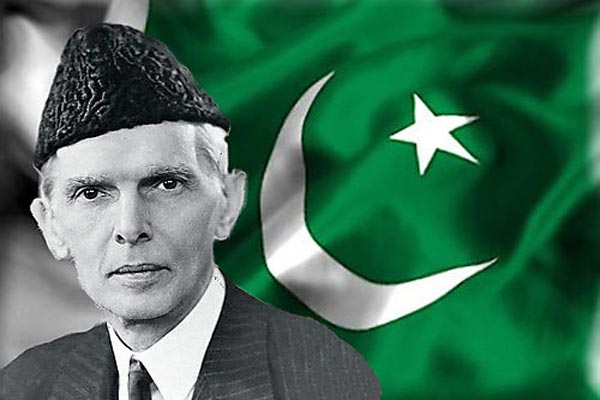
Jinnah claimed that Muslim demands a separate Homeland where they can practice their religion and their culture with full religious freedom and with no restriction. He further said that as Hindus have the complete freedom and liberty in India to carry out their religious rituals same should be for Muslims as they should also be provided with the homeland where they can have freedom and liberty. This declaration from Jinnah became threatening and dangerous for both the Hindus and British Empire because British Empire was now counting their days in the sub continent India and the Hindus were shocked because they will be unable to carry out their hardships and imposing of power on the week Muslims. Jinnah gave the ultimatum that the independence procedure should be carried out not later than 1947 as this ultimatum was less an ultimatum and more as a mere order.
British-Hindu Schemes to avoid Independence
After calling for independence the first success and positive result came in 1942 under the Cripps Mission plan where the British government decided to give the provincial autonomy to the provinces on the basis of their territory. The Cripps Mission was the source of prolonging the Gandhi Jinnah talks in 1944 and hence it was rejected because it was not having exactly what the Muslims were demanding.
The crucial phase was in the year 1946 and 1947 when the Cabinet Mission Plan was being brought be the three viceroys who came from Britain to carry out the division process of the sub continent India. Initially the Cabinet Mission Plan was basically designed and formulated to make one last effort to avoid the independence as in this proposal the British government decided to keep the foreign affairs and the defense under the federal rule and the remaining was to be given to the India where they can form their own government dividing in between the two major political parties of India which included Congress and Muslim League. But Jinnah was aware of the fact that if this is being accepted by the Muslims they will be sure that Hindus will restart what they did in the general election of 1937 and will further crush and humiliate the Muslims and that’s why Jinnah with his League didn’t backed off from their demand of the separate home land and soon after observing the rigidness and the pressure from the Britain Government the independence was being considered as inevitable.
Hindus were having more influence on the British Government so it was obvious that the division of assets and the division of territories will be unfair and that is what happened. In the 3rd June plan it was being decided that Hindu Majority areas will be joined with the India while the Muslim Majority areas will be allowed to join the newly formed Pakistan. The disputed territories were given the freedom of joining either India or Pakistan as per their own will and need. So finally it was being declared that Pakistan a new country and home land for the Muslims will be formed on the 14th of August, 1947 while after a day of the independence of Muslims the Hindus will get the independence on the 15th August, 1947.
Being a Leader; Dealing with the critical issues of Pakistan
Quaid-e-Azam solidarity effort in the creation of a separate homeland for the Muslim, the Muslim league decided to make Quaid-e-Azam Mohammad Ali Jinnah as the first Governor General of the state Pakistan, on the other hand Congress appoint Mountbatten as the first Governor General of the independent India. As soon as Pakistan came in to being it was all over challenges for Jinnah again, and after rescuing the Muslims from the British and Hindu rule now Jinnah had to fight against these issues which could very easily drown the newly born state.
The very initial problem was to accommodate the refugees which have migrated from the sub continent India. This migration was considered to be the largest migration ever made on earth by any nation so fulfilling the basic needs of such mountainous number of people was surely a big threat to the newly formed state. But the people had faith in their leader and the capital which was received from the Indian government was initially used for the rehabilitation of the people and fulfilling their basics needs like food, shelter, medical facilities and education.
Having neighbors like India so defense should be strong and that is what Jinnah immediately realized and soon after the independence he worked on forming the army, setting up ammunition factories so that the newly formed state can have its own protection from the evil eyes of the outside which were poking to conquer the land.
Indus water issue and the Kashmir issue were also considered to be the critical problem which Jinnah dealt with extreme calmness and assurance. This is because from the first day Pakistan was an agricultural state as the economy was directly related with agriculture, under such conditions stopping the water from Indus river India was the strategy to destroy the economy of the country but Jinnah with his companions dealt with problems strongly and soon Pakistan started to emerge on the map of the world as an independent Islamic Republic of Pakistan.
Conclusive words and the message for nation by Quaid-e-Azam
Soon Jinnah realized that he has done for what he was born and he wanted to inculcate he belief, his views and his values in the nation and that is why he made his last speech on 14th August 1948 on the first anniversary of Pakistan and said that;
“The foundations of your state have been laid and it is now for you to build and build as quickly as well as you can” His words stated that how much he was concern for his nation and for his people and obviously for the state Pakistan. He guided the officials that “you are the servant of the nation don’t behave like the boss or the master but be the servant and work for the betterment and the cause of the nation. Never put your interest over the national interest of the state because the prime objective should be the national state and not you.”
Quaid-e-Azam Mohammad Ali Jinnah died 11th September, 1948 at the age of 72 years, he has only one Daughter. Quaid E Azam Daughter Name is Dina Wadia. In his entire age his maximum time was spent in serving the mankind and especially in regaining and recollecting the Muslims on one platform and on one objective. Pakistan is missing such leaders and it is surely impossible that the world will ever see and witness such a personality and leader ever again.
Well this is the complete Biography of Quaid-e-Azam Mohammad Ali Jinnah hope you enjoy reading this.

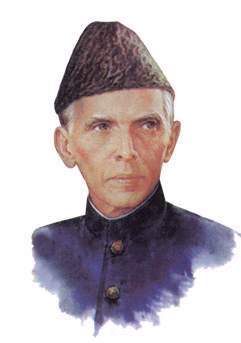
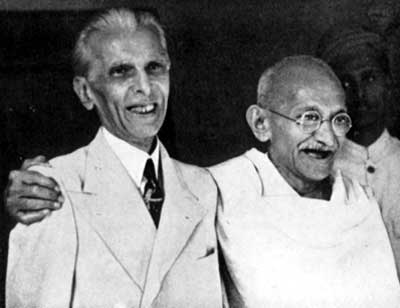
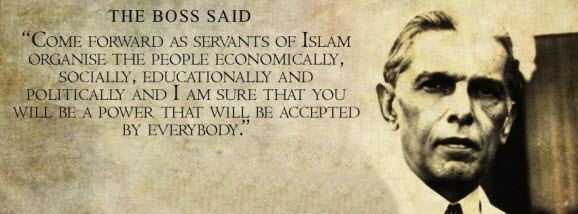
please short questions about the life of quaideazam
Quaid-e-Azam was born in Thatta?
Every few years there is an attempt by vested interests to create doubts among Pakistanis about Mr. Jinnah’s birthplace. There is of course no doubt that he was born in Karachi, but the detractors say that he was born in Jherruck (near Thatta). I have studied this matter in detail, and the only basis for it is that someone (I think it was the late Syed Ghulam Mustafa Shah, PPP MNA from Thatta) inserted in Sindhi textbooks the disinformation about the founder of Pakistan being born in Jherruck. His aim of course was to make Jherruck a place of pilgrimage so that its infrastructure would be improved, roads and schools would be built and tourism in the region would increase.
Some years ago, during BB’s second stint in power, this controversy was raised by those who apparently think Mr. Jinnah was out of his senses when he said he was born in Karachi (and this was the main reason for selecting Karachi as the capital of Pakistan). Even his two sisters (Ms Fatima Jinnah and Ms Shirin Jinnah) said many times that Karachi was the great man’s birthplace.
But just because of a single textbook which said otherwise, Ms Humera Alwani, PPP legislator has presented a bill to declare Jherruck as the birthplace of the Quaid. My question is, why wasn’t this issue raised when Mr. Jinnah and his associates were alive or when the Quaid’s official biography was published in the nineteen fifties? Why didn’t Sindhi MNAs and MPAs object when BB herself said that Karachi was the city in which the Quaid was born? And finally, why are they ignoring the many English and Urdu textbooks in Pakistan which confirm this?
I wouldn’t be surprised if one of these days someone builds a tomb in Jherruck and claims that the Quaid is buried there (and not in the mausoleum in Karachi)! Anything is possible in Pakistan.
AZIZ JAMALI TALHAR 03462243209
Aoa everyone
Aman ki asha karnee he thee aur agar pakistanis aur indians main agar koi faraq nahin tha to kiya hamray Azeem leaders ka dimakh kharab tha jo unhon nay pakistan ki azadi kay liya din raat laray Aur saab say stupid pakistani news channel yani GEO NEWS (jo aman ki asha bhi kar raha hay)nay kaha hay k “parhnay likhnay k siwa Pakistan k matlab kiya” halan k pakistan islam k naam par liya giya tha.
Agar kisi ko koi problem in my comment plz write it so i can tell u my answer.
Thankyou and AH.
He was admitted in the primary school of the town established in 1870. The school’s General Register is missing. Before this controversy when the announcement of his Birth Place was made in the teaching course taught in Pakistan until 1962. It was written as Jhirk in the 8th lession of the course till 1962 in the Books from primary to Graduation level and remained in all level of books up to the tenure of Prime Minister of Pakistan Zulfiqar Ali Bhutto 1976.
Father of Nation was born at the old village of JHIRK the district of Thatta.
It has been alleged that Muhammad Ali Jinnah was born in Jhirk,
He was admitted in the primary school of the town established in 1870. The school’s General Register is missing. Before this controversy when the announcement of his Birth Place was made in the teaching course taught in Pakistan until 1962.
Sir i am Munir Hasan. Student Of BBA. Sir I’ve a complete history of the title of Quaid-e-Azam. Sir Muhammad Ali Jinnah ke zamane mein Maulana Mazharuddin Jo “Al-Aman” newspaper ke editor thay unhn ne sbse pehle Muhammad Ali Jinnah ko apne newspaper “Al-Aman” mein Quaid-e-Azam ke laqab se pukara. jisko us wqt ke mshor tareen leader Ferozuddin sahab ne prh kr nara lga kr mashor kia…Aur Maulana Mazharuddin ko Indians ne jb shaheed krdia to meri par nani ko Nawaz Sharif sahab ne Al Hamra Hall mein Quaid-e-Azam ke lqb ki khushi pr Gold Medal dia jo aj tk lahore mein mere nana ke pas mojod hai. Sir jahan bhi mai dekhta hn mjhe har kitab mein yehi likha nzr ata ha ke sbse pehle lqb choose hi Ferozuddin sahab ne kia. Sir correct info ye hai ke Laqab mere par nana Maulana Mazharuddin ne sbse pehle Apne Akhbar mein dia, Muhammad Ali Jinnah ke leay aik laqab psnd kia jisko unhn ne apne akhbar mein dia…aur usko prh kr Ferozuddin sahab ne mshor kia. Sir agr apko prove chaheay to Mere pas buht saray prove hain baqaida us zamane ki books bhi hain jo print hoen then Maulana Mazharuddin ke laqab dene pr. Plz is msg ko zror prh kr history dekhte hoe plz ap info update kren takay sbko pta chle yeh baat buht kam logon ko maloom hai…